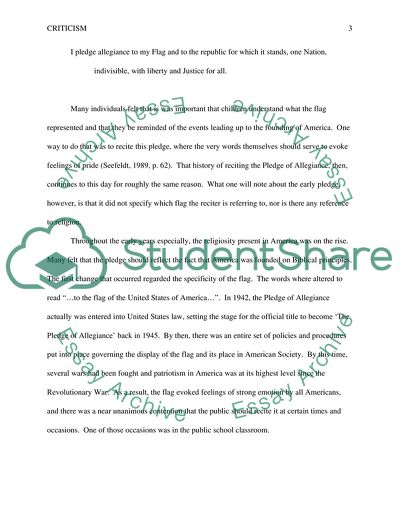Cite this document
(The Criticism of the Pledge of Allegiance in Public Schools Essay, n.d.)
The Criticism of the Pledge of Allegiance in Public Schools Essay. https://studentshare.org/law/1809256-the-criticism-of-the-pledge-of-allegiance-of-the-united-states-and-is-user-in-public-schools
The Criticism of the Pledge of Allegiance in Public Schools Essay. https://studentshare.org/law/1809256-the-criticism-of-the-pledge-of-allegiance-of-the-united-states-and-is-user-in-public-schools
(The Criticism of the Pledge of Allegiance in Public Schools Essay)
The Criticism of the Pledge of Allegiance in Public Schools Essay. https://studentshare.org/law/1809256-the-criticism-of-the-pledge-of-allegiance-of-the-united-states-and-is-user-in-public-schools.
The Criticism of the Pledge of Allegiance in Public Schools Essay. https://studentshare.org/law/1809256-the-criticism-of-the-pledge-of-allegiance-of-the-united-states-and-is-user-in-public-schools.
“The Criticism of the Pledge of Allegiance in Public Schools Essay”. https://studentshare.org/law/1809256-the-criticism-of-the-pledge-of-allegiance-of-the-united-states-and-is-user-in-public-schools.


